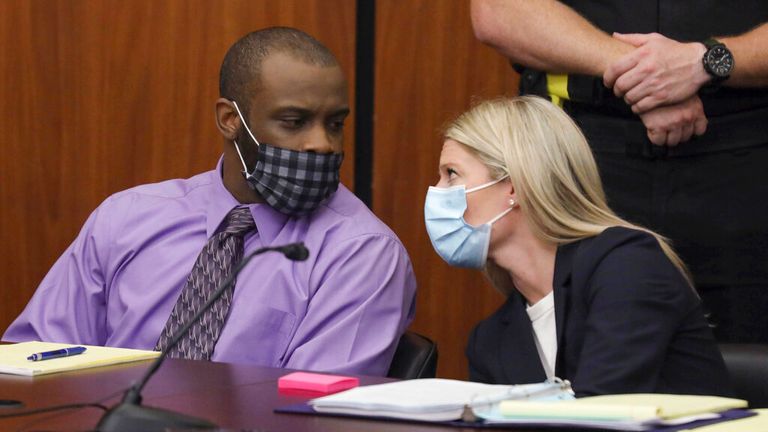A man has been jailed for life after killing a 21-year-old student who mistook his car for her Uber ride.
It took just over an hour for a jury in the US state of South Carolina to convict Nathaniel Rowland of abducting and murdering Samantha Josephson.
Ms Josephson, from New Jersey, had got into Rowland’s car in March 2019, thinking it was the Uber she had booked to take her from Columbia’s Five Points entertainment district back to her apartment.
Prosecutors said Rowland had gone around the block a number of times before pulling up beside Ms Josephson, who had been waiting alone for her ride.
Once she was inside the vehicle, Rowland turned on the child locks, meaning the doors could only be opened from the outside, effectively trapping Ms Josephson.
Her body was found covered with 120 stab wounds, cuts and other injuries, dumped in woodland about 65 miles from the city.
Ms Josephson had been due to graduate from the University of South Carolina and go on to law school with a full scholarship.
Her mother Marci Josephson spoke at Rowland’s sentencing hearing, saying of her daughter: “Her dreams were my dreams, and her death was my death. I close my eyes, and I feel what she endured at his hands.”
Rowland had insisted he was innocent but Circuit Judge Clifton Newman was not convinced, saying: “She obviously put up an amazing fight against you and left a sufficient trail for the jury to see what you did.”
Prosecution experts had linked Ms Josephson’s blood to the interior of Rowland’s car and to a knife with two blades – the suspected murder weapon.
Her blood was found on cleaning supplies in the rubbish behind the home of Rowland’s girlfriend at the time, and on a sock and bandana belonging to him.
A forensic scientist said that DNA from Rowland’s fingernails matched the victim’s genetic material, and DNA belonging to both of them were found on gloves.
Prosecutors also presented video footage of Rowland trying to use Ms Josephson’s debit card and sell her mobile phone after her disappearance, as well as phone tracking evidence.
Phones belonging to Ms Josephson and Rowland were tracked and found travelling together for about 20 minutes before her phone switched off, experts testified.
His phone stayed on all the way to New Zion – his home town and near where Ms Josephson’s body was found.
Rowland did not testify and his lawyers called no witnesses but they argued that, while Ms Josephson appeared to have fought him, none of his DNA was found on her body and he had no visible injuries from a fight when he was arrested.
Ms Josephson’s death prompted changes aimed at improving safety for those using ride-hailing apps such as Uber.
These included a state law requiring drivers to make licence plate numbers visible in the front of their vehicles and criminal penalties for those who impersonate ride-hailing drivers.


